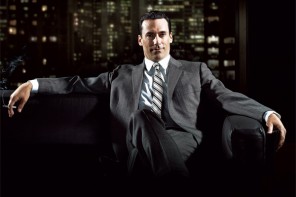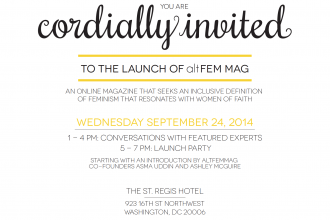My friends call it my “deer-in-headlights” look. Not all of them recognize it, but a select few know it when they see it. Until a few weeks ago, I couldn’t pinpoint exactly what brought on this feeling of unease in certain social settings. “I just feel….lost?” I tried helplessly to explain to one friend.
Bewildered is more like it. I go quiet and fade into observer mode. I make a study of other people in the room that would make a social anthropologist proud, and should someone try to strike up conversation, I find that the synapses relaying social cues from brain to mouth seem to stop working. All symptoms of what I recently learned is the root cause of my malaise: an allergy to the superficial.
During the course of a rather unconventional 32 years, I’ve swung back and forth on friendships. I grew up in a predominantly non-Muslim environment – aside from weekend davaats with family friends, my best friends in the suburban central Jersey town I grew up in were non-Muslim. It wasn’t until college that I entered the world of the American-Muslim community. For the first time, I felt part of something bigger.
There were dangers to both extremes: on the one hand, I was in danger of losing a core part of who I am, and of missing out on pieces of myself that connected me to others. And on the other, I was in danger of losing my individuality to the collective good. Where I once scoffed at the idea of even thinking about marriage before the age of 27 (a random number my teenage brain had settled on early on), I found myself, at 20, seeking a spouse with the same fervor as my Muslim-American peers. Where I prided myself on having goals off the beaten path (journalism, and eventually, novelist), I found myself succumbing to the pressure to conform and choose a career that translated (medicine or law). Where I silently mouthed “alhumdulilah” under my breath after a sneeze, I found myself littering my language with too many “wallahis” and “inshallahs” to be credible.
It was at this precise moment that I moved, across an ocean to Europe, where I lived, traveled, and explored. I credit that time for clarity and balance. Three years in Germany meant cutting ties not only to the habits I’d formed in my first 18 years, but also to the pervasive cultural norms that littered my mind with duties others had imposed upon me. For the first time in my life, there were no other voices in my head save for my own. But most importantly, my time in Germany brought me in contact with people who did their best to understand me, even when they couldn’t; who didn’t try to mold me, even when they could have; who respected and accepted me wholly for who I was. I, in turn, learned to keep an open mind, to be non-judgemental, to understand the value of meaningful connection, loyalty, and discerning taste in the people I surrounded myself with.
I fought hard to retain the lessons I’d learned once I returned to the States. I’ve been lucky enough to cultivate friendships more selectively. But you can’t keep the outside world at bay forever.
So I find myself in social situations where I am uncomfortable: think “Club ISNA,” or large iftaars in big cities, or worse, speed-dating and matrimonial events. Much has been made about the marriage crisis in the Muslim-American community, and while the crisis may be very real, the panic has created a vicious cycle: because we fear the crisis, we feed further into it. We do not discuss the root cause: that in each interaction, we are projecting an image of ourselves instead of our own truths. Sit back and observe once in a while and what will you see? People looking over the shoulder of the person they’re speaking with, scanning the room for the next better thing, the next person they know, the next thing they’ll run to out of fear of missing out. You’ll see members of the same sex locked in unhealthy competition, members of the opposite sex flitting from one conquest to the next.
Two recent articles indicate that this may be the result of broader phenomenon: one about an M.C. Escher-esque meta study that people on Facebook are striving to appear more authentic (note the difference between being authentic and appearing authentic), and another about the difficulty in making and maintaining meaningful friendships.
Social media may have some hand in it, but the concept of authenticity has been long-debated by philosophers over the years. Jean Jacques Rousseau rationalized that authenticity is eroded by the need for esteem of others, and that inauthenticity is the result of external influences. And while most would argue that authenticity requires a conscious rejection of outside influence, the kernel of authenticity resides in each of us: Martin Heidegger argued that authenticity is inherent in choosing the nature of one’s existence and identity.
There is benefit in the collective, just as there is beauty in individuality. The key to keeping yourself sane in both is to strive for the authentic, the genuine. Reveal a real side of your vulnerable underbelly and you may find yourself surprised by the positive reception you get. Spend the time to focus with patience on one person and you may be surprised by what you learn. The answer to so much is two simple words: be yourself.





